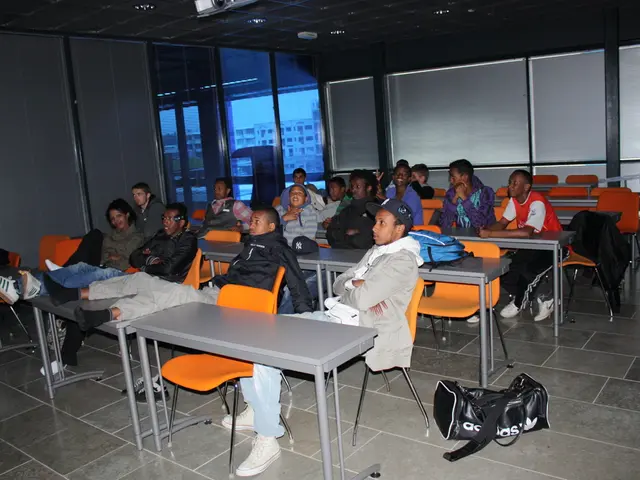Trump's Harbor Hullabaloo: Harvard Wins Reprieve from Student Ban... for Now
Court halts Trump's legal action against Harvard University
Breaking news Facebook Twitter WhatsApp Email Print Copy Link Amidst political mudslinging, Harvard University dodges Trump's tumultuous travel ban for now.
In a recent turn of events, a U.S. federal court has temporarily halted President Donald J. Trump's student ban for Harvard University. The university will continue to admitted foreign students under the existing rules until a court hearing decides otherwise. Judge Allison D. Burroughs' ruling suggests that Harvard may face "immediate and irreparable harm" if the travel ban were enacted.
International Report USA: Where will Trump's wrath strike next? Final outcome uncertain
Although Harvard can temporarily revel in courtroom victory, the ultimate resolution remains unpredictable. The university has actively countered the administration's claims by expanding its ongoing lawsuit.
The government accuses several elite universities, including Harvard, of nurturing a leftist bias and neglecting their duties to combat anti-Semitism. While other universities bend to the government's demands, Harvard stands firmly against far-reaching political directives, choosing instead to challenge them in court.
Politics Harvard: Intellectual fortress under assault
The Trump administration has targeted Harvard University since June 5, 2025, by issuing a proclamation banning the entry of new foreign students intending to study at Harvard under F, M, or J visas. The restrictions are part of a larger dispute over Harvard's alleged noncompliance with the government, including insufficient reporting of disciplinary records for foreign students and inadequate oversight of its foreign student population. Critics argue that this lack of transparency jeopardizes national security[1][2].
Harvard, however, has pushed back against the administration's demands, claiming that they are unjustified and exceed governmental authority. The university has submitted thousands of data points regarding its F-1 student population, but the administration still considers this insufficient[3]. The student ban could significantly impact Harvard's international student population, affecting both new and current students[3].
Politics Impacted lives and global shockwaves 72 hours: Trump's travel ban shatters hopes and sparks a crisis at Harvard
In a legal supplement filed in May, Harvard University denounced the U.S. government's actions as a "coordinated and escalating vendetta campaign." The government, in an attempt to control Harvard's leadership, teaching plans, and the ideology of its professors and students, has allegedly gone as far as seeking to exclude Harvard from accessing its international student population[1].
Since the dispute began in June, Harvard has fought against the U.S. government's efforts to bar foreign students from attending the university. Judge Burroughs initially stopped the plan in May, and her recent ruling has extended this injunction[4]. The order currently prevents the government from barring the university from continuing to accept foreign students through a special federal program.
Source: ntv.de, mdi/dpa/AFP
- Donald Trump
- USA
- Harvard
- Elite University
- Politics
- University
Enrichment Insights:
- The proclamation issued by President Trump on June 5, 2025, suspended the entry of new foreign students seeking to study or participate in exchange programs at Harvard University under F, M, or J visas[1].
- The travel ban is part of a broader dispute over Harvard's alleged failure to report disciplinary records for foreign students and to police its foreign student population thoroughly[1].
- If Harvard loses the ability to sponsor or host international students, thousands currently in the U.S. would be affected[3].
The European Union, with a strong dedication to its global presence, is actively following the ongoing political drama surrounding Donald Trump's travel ban for foreign students at Harvard University. This case, representing a significant issue in education-and-self-development, holds implications for universities worldwide, potentially impacting general news trends in the future.







